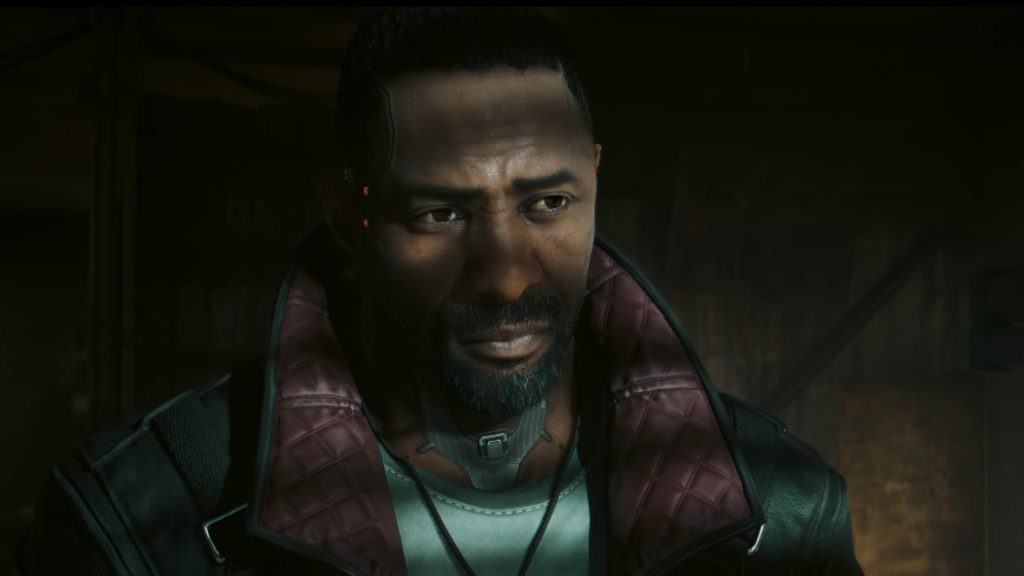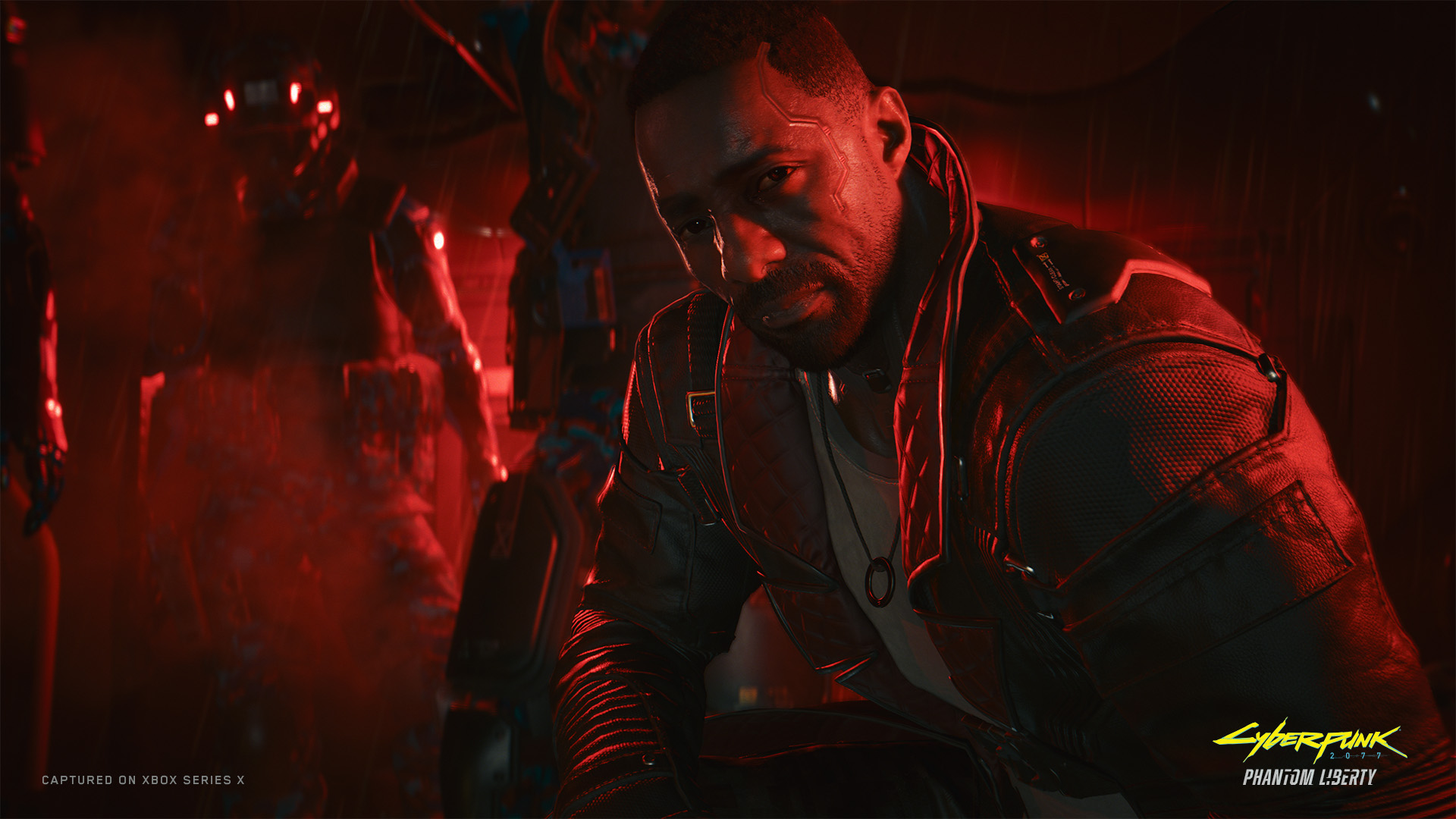With the one-two punch of the radical improvements of Update 2.0 and the incredible Phantom Liberty, Cyberpunk 2077 has well and truly completed its redemption arc, but though CD Projekt RED is now ready to move on from the open world RPG to the many other new projects it has in development, there’s still plenty left to unpack with Cyberpunk 2077 itself. Recently, we had the chance to shoot across some of our most burning questions about the game in the wake of Phantom Liberty’s successful launch to CD Projekt RED’s senior writer, Magda Zych, who spoke with us about the expansion’s development, the process of overhauling the base game, what the future holds for Cyberpunk, and more. You can read our full interview below.
“We, as scriptwriters, started working on the Phantom Liberty expansion as the first team; the first brainstorms took place way before the release of Cyberpunk 2077, so we didn’t have that much time to think about the aftermath of the release, but even we could see a clear change that came with it, for example in how we expressed concerns within the whole team instead of the “do it and see how it goes” approach.”
Cyberpunk 2077 has had an eventful journey from launch to now, nearly three years later, and it’s fair to say that things have turned around significantly for the game. Can you talk to us about what that journey has been like, and what your biggest takeaways have been from these last three years?
For me, this whole journey was divided into certain distinct stages, and it started even before the base game’s release. When I looked at the finished dialogue graphs and saw how extensive they were compared to the graphs in The Witcher 3: Wild Hunt, I had a feeling that this was an enormous undertaking — this stage contained some anxiety and great expectations. Right after the launch, there was a period of shock and denial. Then began a period of reconciliation and trying to understand what happened, a period of discussions on how we can fix everything — and then probably the longest period of releasing updates and, in a sense, healing. We, as scriptwriters, started working on the Phantom Liberty expansion as the first team; the first brainstorms took place way before the release of Cyberpunk 2077, so we didn’t have that much time to think about the aftermath of the release, but even we could see a clear change that came with it, for example in how we expressed concerns within the whole team instead of the “do it and see how it goes” approach.
After Update 1.6, many would have thought that with the vast majority of the game’s technical issues having been addressed, there wouldn’t be any further major changes to the base experience. At what point was it decided to introduce the many system and gameplay overhauls that Update 2.0 brings?
It’s not the case that there was some decision after Patch 1.6 to introduce the changes that came with Update 2.0. Some of what was there was already planned earlier, but many of the changes came from player feedback and from how we saw gamers interact with the game, what we thought could improve their experience more, etc. We were working on these improvements and changes alongside the Edgerunners Update, aka Patch 1.6.
At a certain point, however, we did realize that the number and magnitude of future changes we were considering was really significant, to the point where they would revamp virtually all of the game’s systems, such as perk trees or police. This and other new elements made us think this deserves a “2.0” approach: it’s not what we might’ve planned from the very beginning, as we didn’t have all that player-experience data and feedback, but it’s the way we believe is right.
With Phantom Liberty and its spy thriller vibe, what motivated the decision to tell a story that, tonally speaking, feels so significantly different from the base game?
From the start, we wanted to tell a story that would constitute a separate whole, not just new quests that would slot in with the base game’s story. I don’t know if I can agree that Phantom Liberty’s story is all that different from the base game’s plot in terms of its vibe. Cyberpunk 2077 discusses the issues of exploitation and mistreatment of humans by corporations, corruption in the police force and among politicians, etc., all the flagship themes of the dark future. In this sense, Phantom Liberty develops those topics by extending them to politicians at higher levels and to state agencies, from which the only escape is to lie low in a state within a state, run by anarchist militias.

“At a certain point, however, we did realize that the number and magnitude of future changes we were considering was really significant, to the point where they would revamp virtually all of the game’s systems, such as perk trees or police. This and other new elements made us think this deserves a “2.0” approach: it’s not what we might’ve planned from the very beginning, as we didn’t have all that player-experience data and feedback, but it’s the way we believe is right.”
Looking to the future, can you give us any indication as to what you’ve got planned for the series’ next installment? Most of Cyberpunk 2077’s endings (especially the one added with Phantom Liberty) seem to pretty strongly suggest that V’s story is over. Does that mean we’ll be playing as a new protagonist in the next game?
At this stage, we don’t want to impose any restrictions on ourselves yet, as we’re exploring many possibilities. Our first priority is always to tell an engaging, multi-layered, mature story, and it’s most important to create characters that reflect that.
Speaking of the new ending, can you tell us about the process of landing on what’s a decidedly bleak conclusion to the story for V? It’s definitely a bold way to end the story, and in my personal view, it’s executed excellently, but it’s not often we see games completely taking their gloves off the way Cyberpunk’s new ending does.
I know that some players were disappointed that we didn’t add a “good” ending when Phantom Liberty was released. The thing is, Cyberpunk 2077 is a noir game and in this genre there is no place for happy endings by definition. Is anyone complaining that Casablanca ends badly? These are the genre rules. We have always strived for immersion and for our games to give the greatest possible illusion of reality, and as we know, not every real story always has a happy ending, we also know that every human life ends in death. V has still more variation in this regard; also for V everything simply happens in a more intensified way (which is also how things go in cyberpunk as a genre) and over a shorter period of time. But in my opinion, just because the story ends in a bleak way doesn’t mean it’s not worth experiencing. I’d say the opposite — it hits you harder because it rings true.
Do you ever see yourself potentially moving away from Night City in a future Cyberpunk game, or do you feel that setting is just too embedded in the IP’s identity to leave behind?
As [Cyberpunk creator] Mike Pondsmith said, cyberpunk as a genre is a kind of warning of what might happen if we’re not careful as a race. It’s not such an abstract sci-fi idea. I think these kinds of stories can take place anywhere that uber-capitalism develops, causing the collapse of societies. Night City is just a place like any other city, real or imagined.
With the likes of Keanu Reeves and Idris Elba, Cyberpunk 2077 and Phantom Liberty have boasted some incredible star talent, both of whom have been excellent in their roles. Is that something that you want to keep doing with Cyberpunk in the future as well?
Any talented actor who will help us tell our stories the way we imagined them and at the same time who is able to help us reach new audiences from among their fans is a great opportunity for us; and we will definitely want to continue this as long as it makes sense for the story we want to tell. What we always pay the greatest attention to is ensuring that an actor is able to convey their character’s personality, that they are convincing in the role, so that the world in our games feels as credible as possible.

“Any talented actor who will help us tell our stories the way we imagined them and at the same time who is able to help us reach new audiences from among their fans is a great opportunity for us; and we will definitely want to continue this as long as it makes sense for the story we want to tell.”
With the majority of work on Cyberpunk 2077 now having wrapped up, I suppose Cyberpunk 2 is next in line, but given the fact that CD PROJEKT RED also has several other projects in the works (like the next Witcher game), is it fair to say that, for the time being, the team working on the next Cyberpunk is going to be fairly small, especially considering the relocation to CDPR North America?
A smaller team always works on any given project in the pre-production phase, which is natural, so this has nothing to do with the fact that a new installment of Cyberpunk will now be developed in the US. In my opinion, with access to so many talents in that region, developing teams as needed shouldn’t be too difficult a challenge, especially since some of the most experienced people who worked on Cyberpunk 2077 will be part of production.
What are the biggest lessons you’ll be taking from your journey with Cyberpunk 2077 into the series’ future, both in terms of actual game design and how to set and manage expectations prior to launch?
At one point while working on the game, we had to make a list of facts that influenced the quest’s possible outcome and all the dialogue variations. I was responsible for the character of Judy Alvarez and her whole storyline, so after gathering these facts, I was surprised because that column in the spreadsheet was long as hell, and then — cut to just after the launch — I read in reviews that people expected the story to branch out more. That really surprised me, as I knew how many different choices and factors went into just that single story arc. So it felt like there was some disconnect between my view on it and the expectations of the audience.
Later, when I was discussing branching narration with my students at the Warsaw Film School, I realized that people who develop games have a pretty good idea about features and possibilities, but like to be conveniently ignorant of limitations. I was definitely guilty of that myself. I knew that we had a dialogue system unlike any other game; of course there are great AAA RPGs with an impressive storyline, but without dialogue choices, and games with dialogue choices but without that big interactive world. I was so hyped, I wanted to use all those cool features, and not think about how the number of lines to record and to set in the scene by cinematic designers grows exponentially. Now I would probably try to think more about limitations, and about what cool features I can add to create some framework for expectations, because the difference between game enthusiasts and game devs is that the former should stay unaware of limitations, because that enhances immersion, but the latter absolutely have to be.